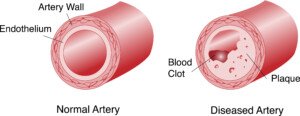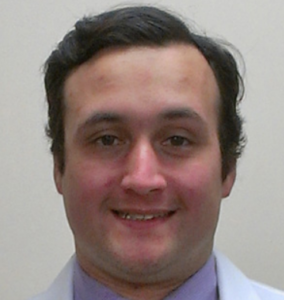
Find out how often and why cardiologists miss severe heart disease when examining a patient.
It’s possible for a cardiologist to miss severe heart disease when giving a patient a heart exam, and actually go as far as telling the patient, “You’re the last person I’d ever expect to have a heart attack.”
This happened to my mother. Ten months later she had emergency quintuple bypass surgery.
“This can happen if the stress test is normal but the patient has severe triple vessel coronary disease,” says Dr. Sameer Sayeed, a cardiologist at ColumbiaDoctors of Somers, NY.
“Some nuclear stress tests can be normal in the setting of triple vessel disease due to a phenomenon called balance ischemia where the blood flow discrepancy cancels each other out and the test appears normal.”
In other words, relative blood flow is detected, rather than absolute blood flow.
Thus, if only one or two of the three major vessels is/are severely blocked, this will cause a disparity in blood flow that will be easily detected.
How common is balance ischemia as a camouflage in a stress test?
Dr. Sayeed says, “This probably happens in a relatively small percentage of people, 5% or less. A cardiologist with a high suspicion of disease based on symptoms and exam and history would not trust the falsely normal stress test and probably perform a coronary angiogram.”
But what if the patient reports no symptoms?
My mother did not have symptoms 10 months before three doctors said that a massive heart attack was imminent.
She saw a cardiologist because an EKG, taken in the ER as part of a complete workup to find out why she was sleeping so much, revealed a “left bundle block.” The ER doctor told her to follow up with a cardiologist.
The cardiologist did not order a stress test or any other imaging procedure.
She gathered subjective information from my mother, then examined her with a stethoscope, noted the pulse and blood pressure, and declared her heart healthy.
If the patient has no symptoms, has normal blood pressure, normal pulse, is not diabetic, does not smoke or drink, is not obese and reports no family history of heart disease, what SHOULD the cardiologist do?
When the cardiologist asks the patient, “Do you exercise?” and the patient says, “Well, I maintain a large house that has a staircase, and I’m up and down those stairs a hundred times a day,” the cardiologist should see a blaring red flag.
When people say things like this, assume they are sedentary!
A staircase in the house does not mean the resident has a built-in cardiovascular exercise program!
My mother had three blaring risk factors for severe heart disease that the cardiologist should NOT have missed:
1) elderly age
2) lack of structured aerobic exercise
3) excess fat in the midsection (though she was not obese).
The cardiologist should have probed further with the exercise — for example:
“Do you do any brisk walking for at least 30 minutes most days of the week — and whatever walking you do while shopping does not count.”
And, “Do you take any fitness classes? Do you use any cardio machines like a bike, treadmill or elliptical? Do you jog?”
Sedentary people have a way of convincing themselves they get “plenty of exercise” by believing that housework and shopping count as sustained, rhythmic cardiovascular exercise!

Freepik.com
Though probing the exercise habits often will not turn up useful information when so many people believe that walking 3 mph on a treadmill while holding on counts as meaningful cardiovascular exercise, the probing can definitely yield insight to the cardiologist screening for severe heart disease.
The cardiologist asked my mother about her diet.
My mother replied, “I eat a balanced diet. I hardly eat fast-food. I watch my portions. I don’t eat much sweets.” The cardiologist did NOT probe further.
The problem isn’t so much the type of food; it’s the BRAND.
Popular, commercial brands of processed goods (potato mixes, pasta mixes, seasoning packets, salad dressings, bread crumbs, frozen dinners, frozen side dishes, processed frozen meats) are full of trans fats, which damage coronary arteries!
My mother’s diet was rich in heavily processed foods: trans fats! Trans fats are also “hidden” in foods whose packaging says “Zero trans fats!”
As for no family history of heart disease, my mother confidently declared this, even though at the time, her son had been diagnosed with heart disease years before, and she had siblings whose health histories she was not aware of (one eventually had a heart attack!).
Do you now see how easy it is for a cardiologist to miss severe coronary heart disease?

Shutterstock/OSweetNature
If you’re worried about your heart, be sure you know the FACTS to what seem to be simple questions that the cardiologist will ask about your lifestyle and family history.
And get your coronary calcium score taken; discuss this with your cardiologist, as this can be extremely telling of the presence of severe coronary heart disease.

Dr. Sayeed performs echocardiograms and stress tests at the Midtown Manhattan and Westchester offices at Columbia Doctors. He is also trained in cardiac CT imaging.
 Lorra Garrick has been covering medical, fitness and cybersecurity topics for many years, having written thousands of articles for print magazines and websites, including as a ghostwriter. She’s also a former ACE-certified personal trainer.
Lorra Garrick has been covering medical, fitness and cybersecurity topics for many years, having written thousands of articles for print magazines and websites, including as a ghostwriter. She’s also a former ACE-certified personal trainer.
.


























